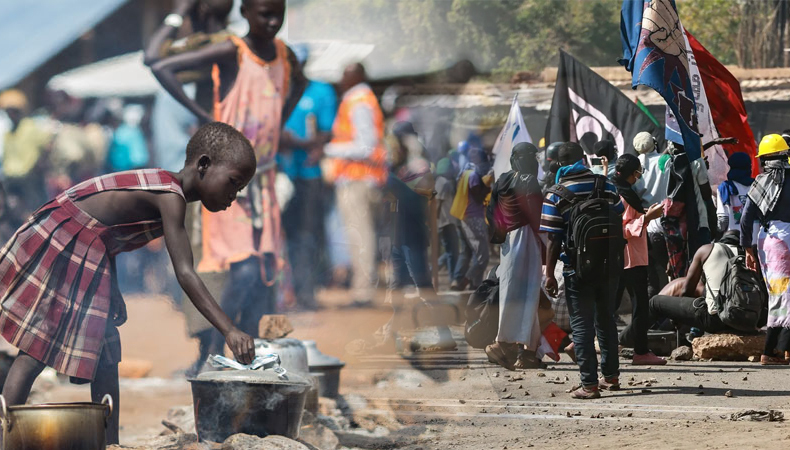Will violence in Sudan trigger a refugee crisis?

Germain Mwehu, who works for the International Committee of the Red Cross (ICRC) in Khartoum, has been receiving non-stop calls in the last few days from people in urgent need of help as fighting in Sudan rages for a fifth day despite an internationally brokered ceasefire that was supposed to be in effect for 24 hours.
He recounts a call from a Khartoum University student pleading for the ICRC’s help to return to her home. The young woman has been stranded at the institution since Saturday. “But we can’t do anything,” Al-Jazeera quoted Mwehu as saying – representing the issues humanitarian organisations have been encountering as the deadly fighting continues.
Citing Sudan’s health ministry, the World Health Organisation said at least 270 people have been killed in the conflict. But the true numbers are likely to be much higher as dozens of hospitals, airports, power stations, and homes have faced serious aerial bombardment. The ministry has raised concerns over the deteriorating healthcare situation as hospitals go out of service.
Humanitarian organisations fear the situation could trigger a wave of refugees in a country already hosting scores of internally displaced people (IDPs) and refugees. But the International Rescue Committee (IRC) does not currently anticipate a movement of people outside Sudan, but rather within its borders.
Read | Saudi’s foreign minister and US Secretary Blinken call for an end to the fighting in Sudan
“… Because if you look at the conflict, it’s so localised in Khartoum now and Darfur,” IRC’s Sudan country director Eatizaz Yousif told Al-Jazeera. Nevertheless, although the organisations haven’t yet seen a movement of people to neighbouring countries, they are ready to respond to the situation as needed.
However, only a handful of humanitarian organisations are currently operating fully in the country. While the ICRC halted its operations on Monday due to the conflict, the World Food Programme suspended its work on Sunday after three of its employees were killed. “It is too unsafe to get out,” Karl Schembri from the Norwegian Refugee Council (NRC) said.
The organisations fear that with continued fighting, refugees and IDPs will continue to be at risk. These populations heavily rely on humanitarian assistance for things such as food and water. It’s critical for peace negotiations to pick up the pace, otherwise, the conflict could trigger a series of serious problems really soon.




